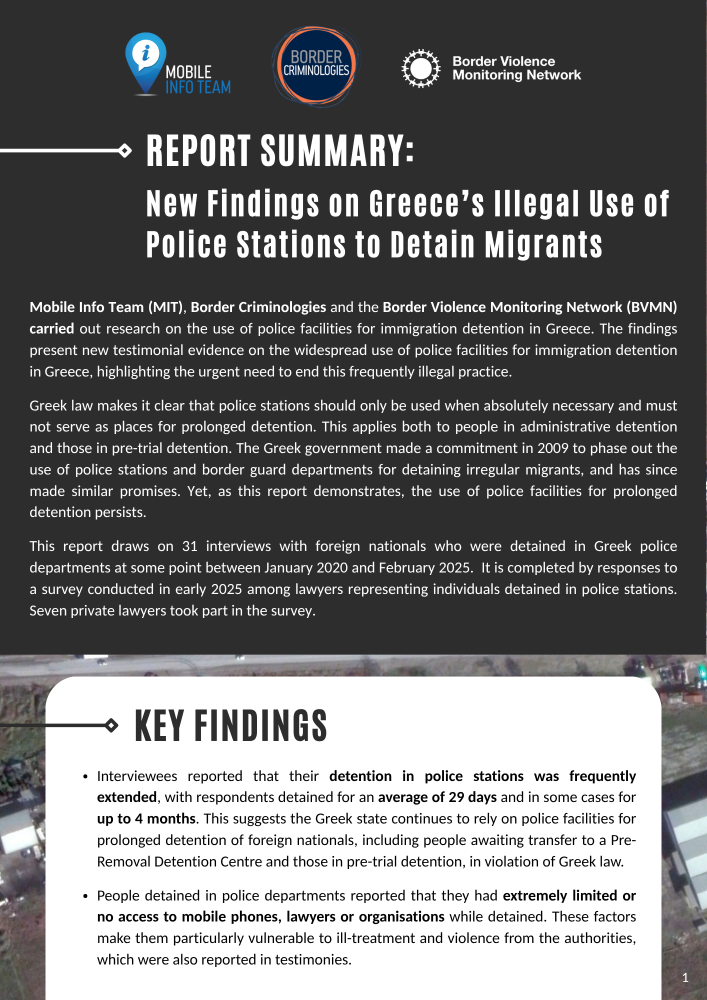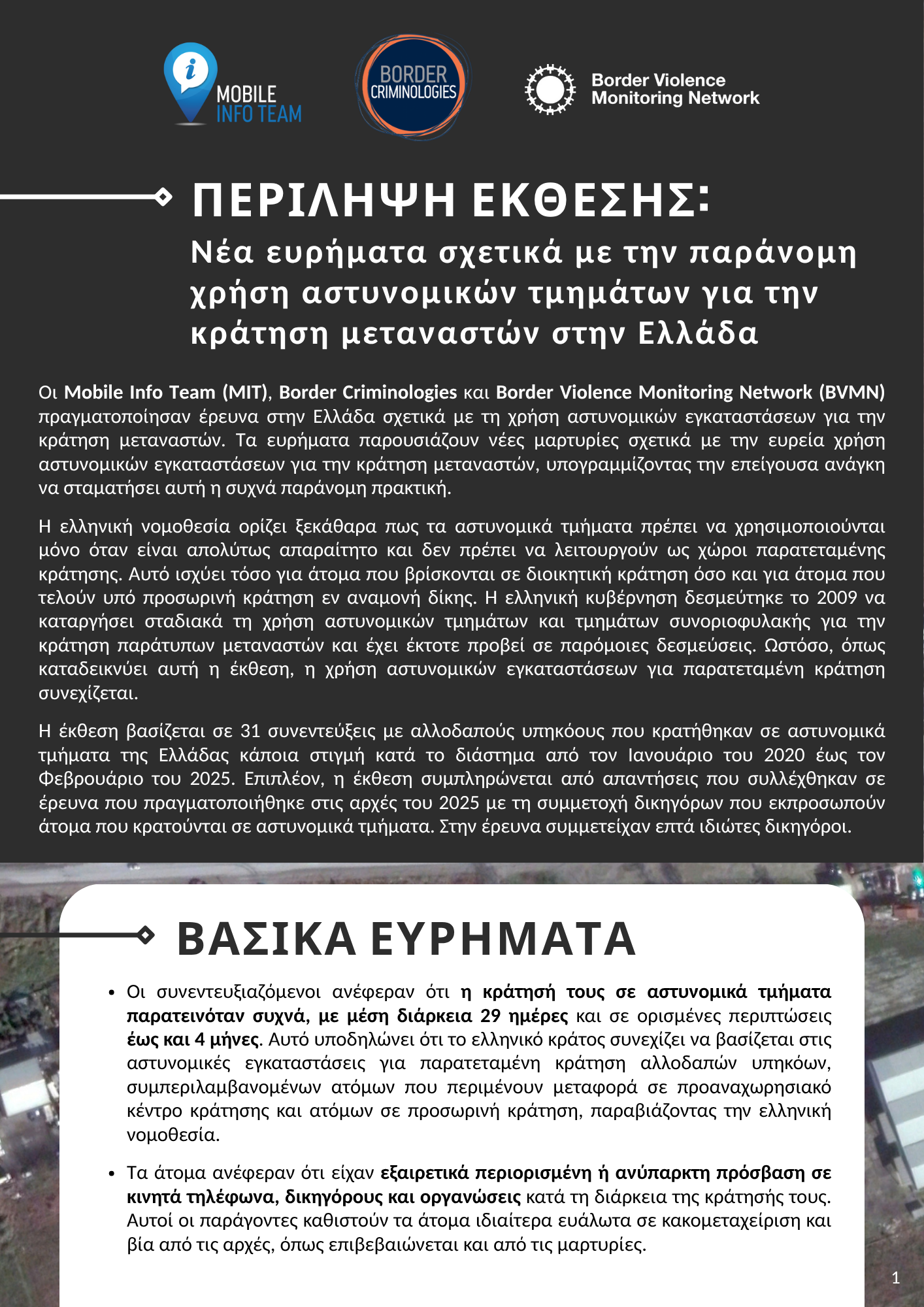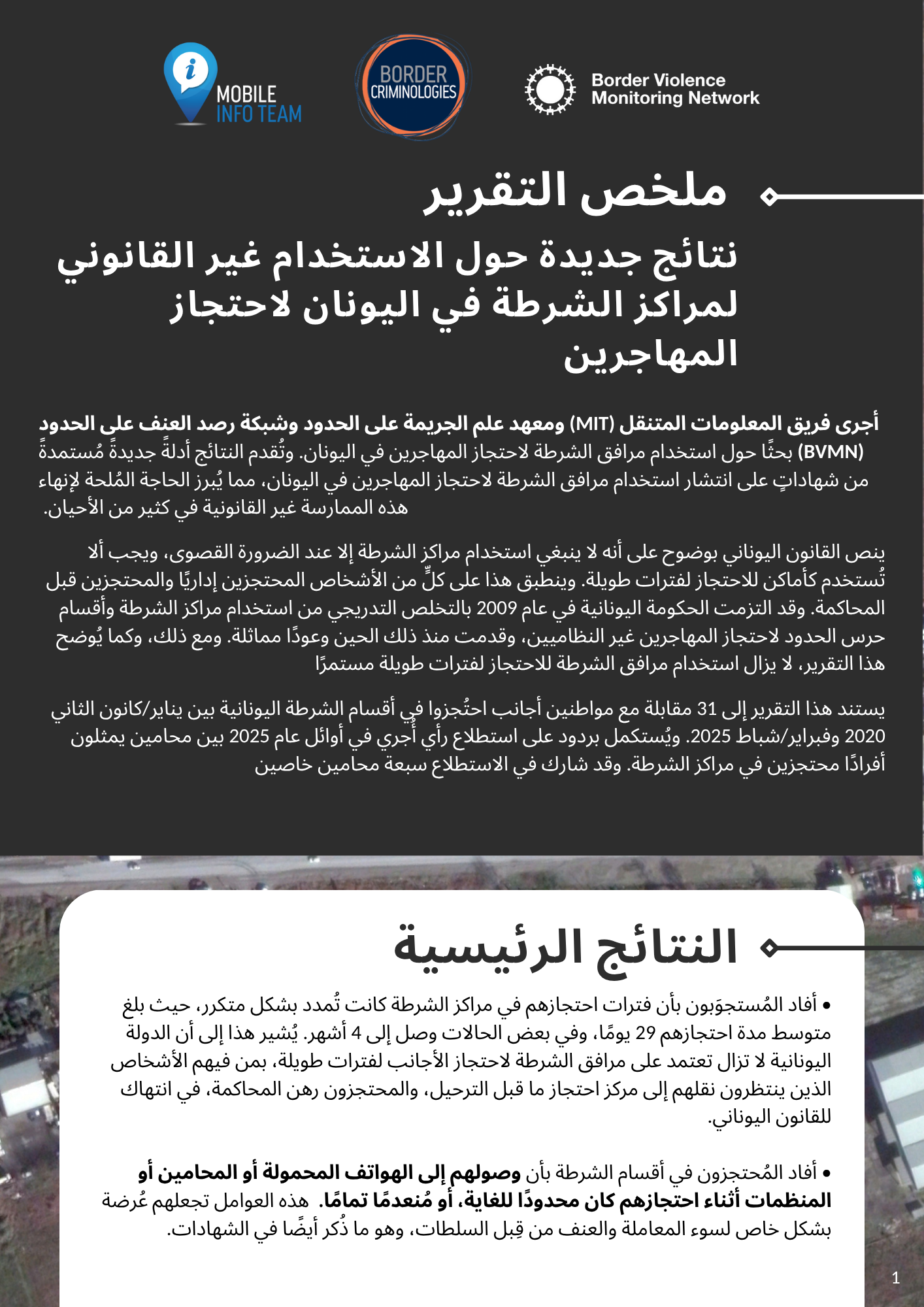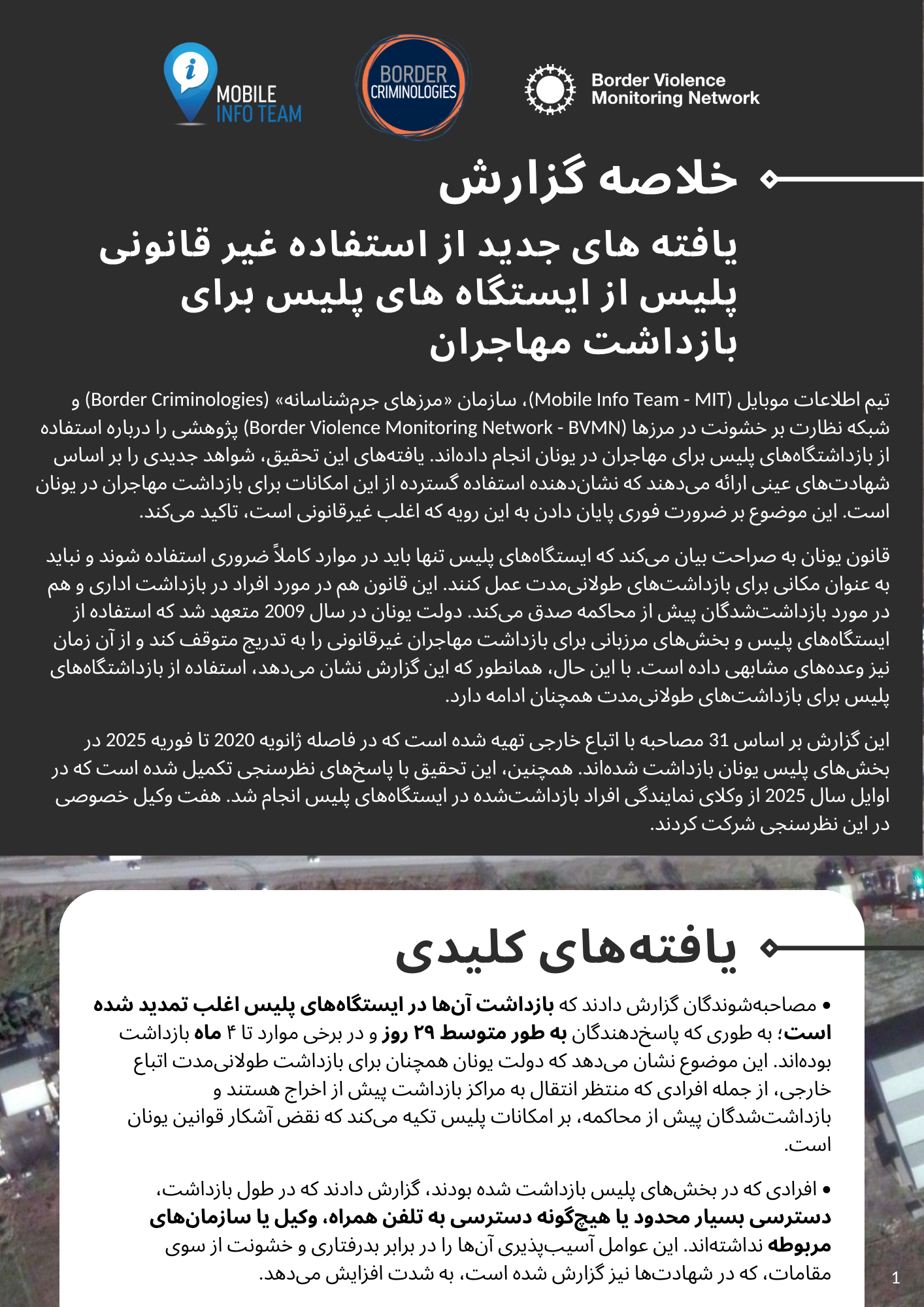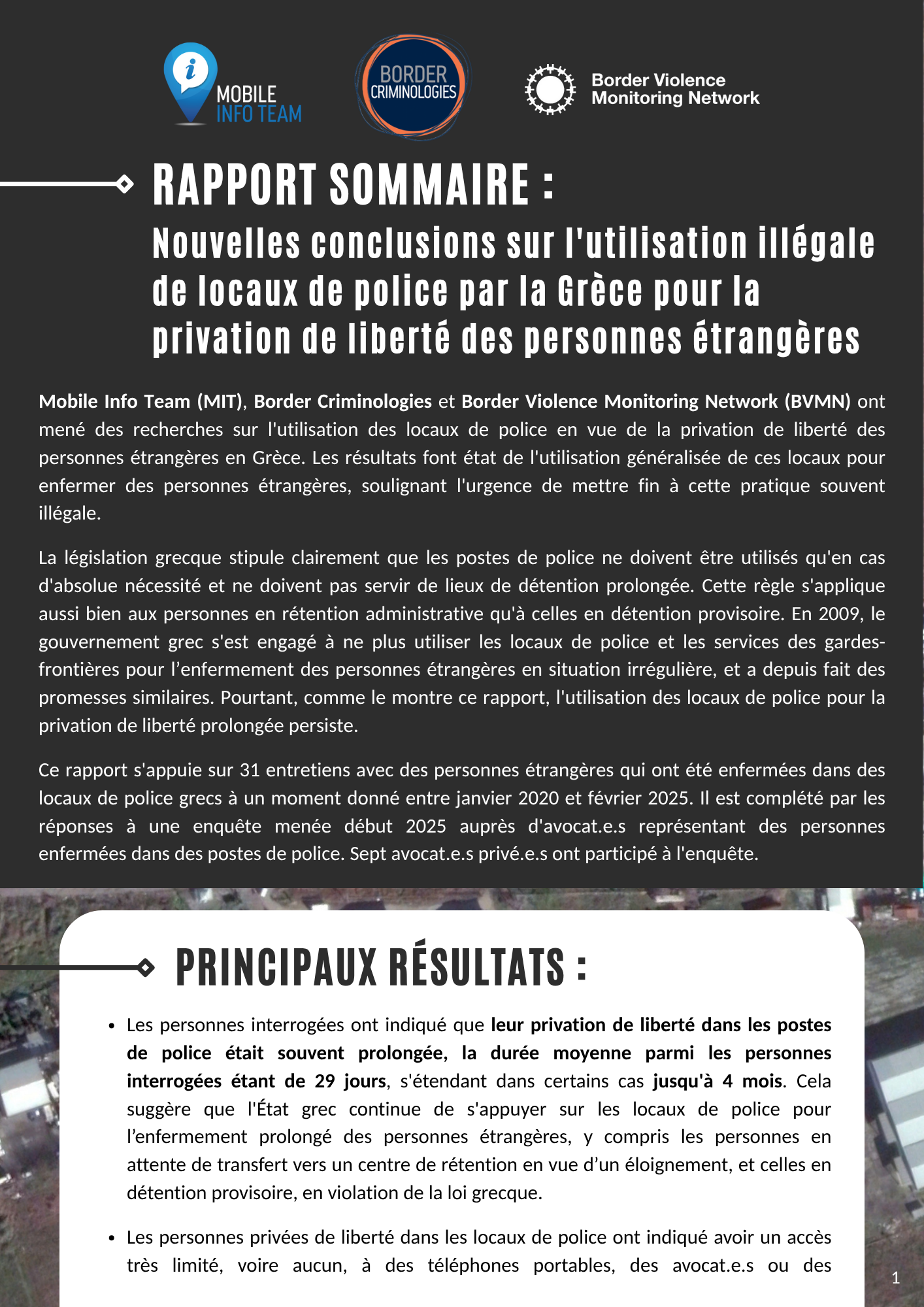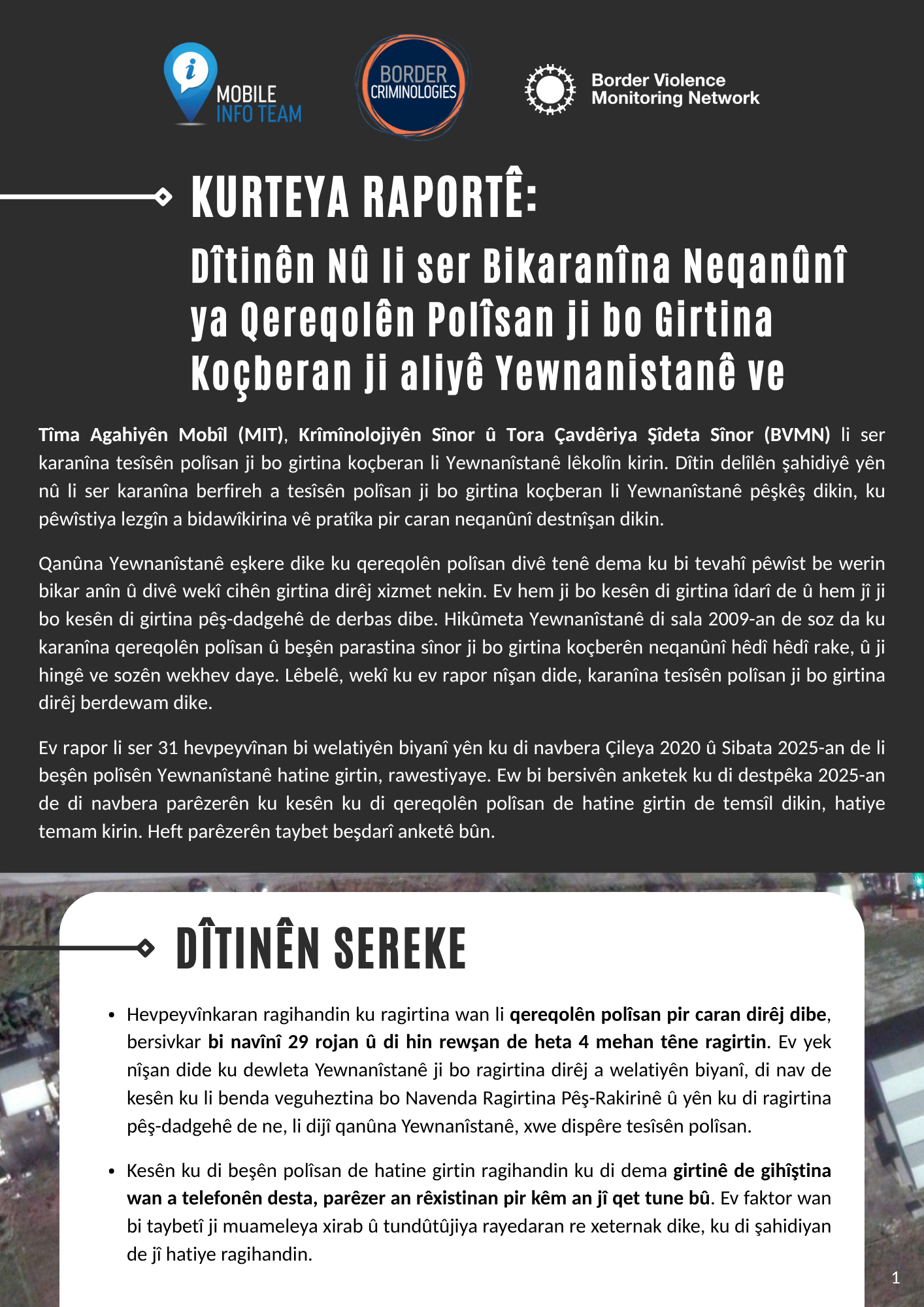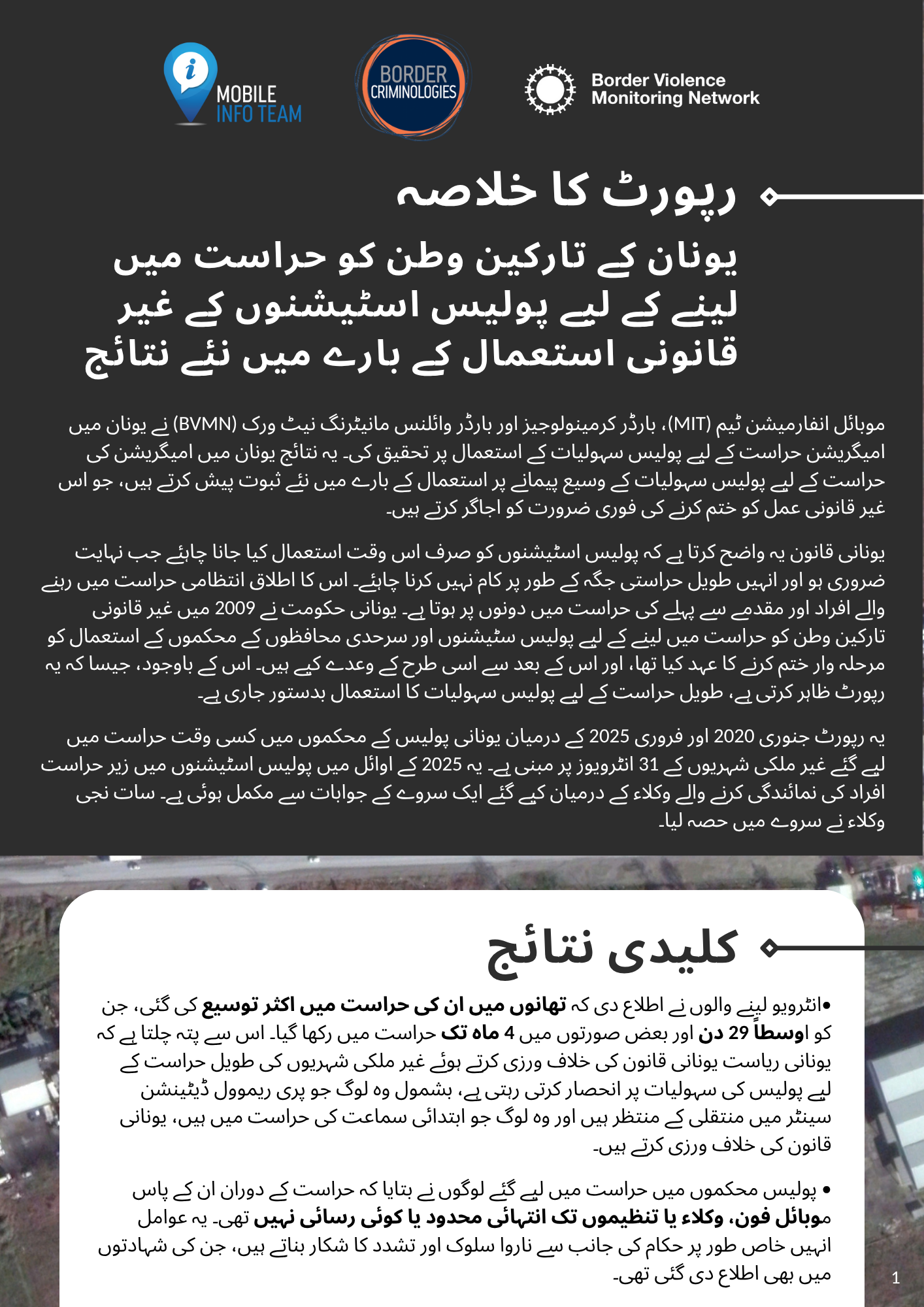16 ← RETURN TO ADVOCACY LIBRARY
No Beds, No Lights, No Rights:
New Findings on Greece’s Illegal Use of Police Stations to Detain Migrants
Mobile Info Team, Border Violence Monitoring Network and Border Criminologies
16 APRIL 2025
“It’s like a prison, no fresh air or things like this. It was like, one day felt like one week.”
(24 year old man, detained for a total of 106 days in northern Greece)
This report presents new testimonial evidence on the widespread use of police departments for immigration detention in Greece, highlighting the urgent need to end this frequently illegal practice.
Greek law makes it clear that police stations should only be used when absolutely necessary and must not serve as places for prolonged detention. This applies both to people in administrative detention and those in pre-trial detention. The Greek government made a commitment in 2009 to phase out the use of police stations and border guard departments for detaining irregular migrants, and has since made similar promises. Yet, as this report demonstrates, the use of police facilities for prolonged detention persists.
Drawing on 31 interviews with foreign nationals who were detained in Greek police departments at some point between January 2020 and February 2025, we present the following findings:
The people we interviewed reported that their detention in police stations was frequently extended, with respondents detained for an average of 29 days and in some cases for up to 4 months. This suggests the Greek state continues to rely on police facilities for prolonged detention of foreign nationals, including people awaiting transfer to a Pre-Removal Detention Centre and those in pretrial detention, in violation of Greek law.
People detained in police departments reported that they had extremely limited or no access to mobile phones, lawyers or organisations while detained. These factors make them particularly vulnerable to ill-treatment and violence from the authorities, which were also reported in testimonies.
Conditions in police stations were reported to be inhuman and degrading, with police cells described as dark, unhygienic and without built-in beds.
Respondents reported that they had no access to outdoor spaces and were provided with just €5.87 a day to buy food, basic items and to purchase phone cards. Access to healthcare services and legal support was reported to be extremely limited in police stations.
Whilst the official number of people in administrative detention in police stations appears to be decreasing, there is a lack of transparency about the extent of this practice, and no systematic monitoring of the length of detention in police facilities and the conditions inside.



